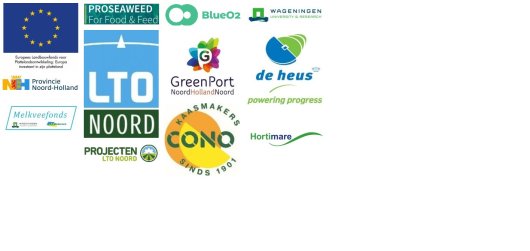
Project
Seaweed in a healthy dairy farm
Healthy dairy farming comes forth from several interrelated goals: animal health, economic health and sustainability. This project unites these goals and investigates the benefits of seaweed as a dietary supplement in dairy farming.
The project contributes to the future-proofing of two agricultural sectors: dairy farming and the seaweed sector. One is closely linked to Dutch traditions, the other has the potential to become the Dutch sector of the future. Connecting these sectors has a lot of potential to create positive synergies for the economy, climate and agriculture.
Dairy cattle
As a partnership, we bring together the knowledge, network and skills to answer the question of the practical applicability of Dutch seaweed as a dietary supplement for dairy cattle. The direct research goals are methane emission reduction by feeding seaweed supplement to dairy cattle while maintaining or improving resource use efficiency and milk production. The indirect aim is to explore a future role of seaweed as a regional protein source in dairy farming. Seaweed naturally contains many minerals and trace elements and also contains an average of 14-16% high-quality protein. In addition, there are indications that certain types of seaweed may have an inhibitory effect on the formation of methane (a greenhouse gas) during the digestion of feed in the gastrointestinal tract.
From broad exploration to practice
As a first step, a literature search and analysis takes place of the existing databases of seaweed species, their composition and ingredients. Potential algae are also assessed for cultivability and applicability. The most perspective algae for dairy cattle are further investigated in the laboratory for chemical composition. The selected algae (about 10 pieces) are then screened in vitro for effects on the fermentation process and methane formation in the cow's stomachs. The result is a ranking of seaweed species with regard to their effect on methane reduction. Based on the results of the laboratory research, three algae are selected for a feeding test with dairy cows. This trial is being conducted on Dairy Campus. The effect of a low dosage of seaweed in the feed on feed intake, milk production and methane emission is being investigated.

